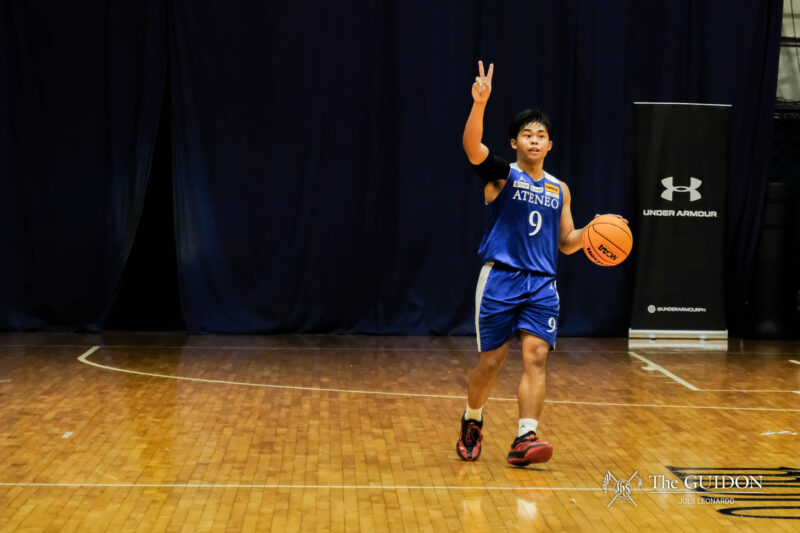By the foyer of the Science and Education Complex B building is Ate Alma, attending to students’ photocopying and printing needs while greeting them as they pass with a cheerful “Hi, pangga!” as they hustle around campus.
It is probably Ate Alma’s smile and jolly demeanor that makes her a distinct personality among non-faculty staff members. This is probably also the reason why students who want to sell merchandise have collaborated with her.
During the second semester of school year 2016-2017, a surge of posts in Ateneo Trade rose, with the same premise for the merchandise they were selling. The gimmick: promising that a percentage of profits in selling merchandise go to Ate Alma. While some embraced the initiative calling it helpful to Ate Alma, others criticized and alleged it as nothing more than taking advantage of Ate Alma and using her as a tool to make a profit.
The ensuing discussion which erupted on social media offered a new topic for discourse: Is the analysis of the initiative as simple as “taking advantage” and “using non-faculty staff as means,” or is it more complicated than that? And if, in the end, the initiative results in something positive, does that remove any possibility of it having been unethical in the first place?
Ethical nuances
What lies at the heart of the matter is whether or not the use of Ate Alma to sell products—even if she receives a share of the profit—is ethically right. Yet, trying to resolve the notion of ethics in such situations is not as clear-cut a situation as it may at first seem.
For example, a common insight from foundational business ethics is human dignity—work should be formative for the worker and encourage development, and not just maximize shareholder wealth. This idea would seemingly reject the practice of using Ate Alma to help sell merchandise, as using her as a means to an end would only truly profit those who use her, while her growth or development is only a secondary concern to profit.
This sentiment of using Ate Alma as a means is what resonated the most with the critics of the initiative, often citing the distribution of profits between the seller and Ate Alma. In the issue in which “Ate Alma shirts” were sold with the promise that one-third of the profits would go to Ate Alma, Ateneo alumni Sid Acuyong tweeted his concern about Ate Alma’s low share of profits: “Pinagkakitaan lang si Ate Alma nung nagbebenta ng t-shirt sa Ateneo Trade 
On the other hand, another school of thought would think that ethical actions are only concerned by the happiness generated or the minimal suffering incurred. Applying this utilitarianism in such a situation would not just embrace the practice but also project it to be the most “ethical” means of helping out. It would view the use of Ate Alma as not just permissible but the most moral. This is due to it being able to keep both Ate Alma and the sellers happy, while also allowing those who purchase to be able to assist. In effect, it would view the situation as the most maximizing way to promote happiness.
Social entrepreneurship
Much of the negative online criticism directed toward the sellers who partnered up with Ate Alma brought up the issue of Ate Alma’s commodification—using her, in effect, as a marketing tool to help move inventory, while receiving only a smaller share of the profits. Still others criticized that only Ate Alma was benefitting from any such arrangements, while other staff members—who many argued were just as in need of help as Ate Alma was—were left in the dark.
Hans Dy, one of the students who partnered up with Ate Alma to sell earpods, argues that the criticisms directed towards his business were likely borne out of a lack of context. His advertisement on Ateneo Trade indicates that majority of the profit from the sale of the earpods is be given to Ate Alma. He explains the that in reality, all of the profits go to her. “The buying of the earpods is 800 and then Ate Alma sells it for 900 so her profit [share] is 100 percent, which is 100 pesos.” He explains, “So, yeah that is the misconception of me commodifying because I don’t really get any profit. [As a] matter of fact, I actually lose gas money and some time and effort,” he says.
Dy recounts that he first learned of Ate Alma’s situation while printing in SEC B and was suddenly offered yema. Ate Alma explained that an Atenean alumni was helping her make money on the side by selling her discounted yema, which she would then sell to students. Dy explains that where his practice differs is that Ate Alma has no initial investment in the earphones. He simply provides her with stock to sell, and any profits are hers to keep. He emphasizes that his intention really is just to find a way to help, and that he is also looking at other possible options with other Loyola Schools (LS) staff.
In any case, Ate Alma herself doesn’t seem to mind one bit. To her, every little bit of help counts at the end of the day, and she’s happy to accept whatever size or shape it comes in. She explains from her point of view: “Para sa akin okay lang ‘ga kasi ano naman din, malaki yung tulong para sa akin, lalo na para sa mga anak ko, lalo na sitwasyon ko … dahil siyempre sa sitwasyon ko ngayon na walang pasok yung asawa ko. Pasalamat pa nga ako sa kanila dahil gumawa sila ng paraan para sa akin (For me, it’s okay to help students sell because it’s a big help for me, especially for my kids and my current situation where my husband doesn’t have work. I’m thankful for the students because they find a way to help me).”
Ends or means?
Such criticism regarding projects to help LS staff have occurred not just on Ateneo Trade. Even org projects have not been spared from backlash regarding the involvement of the LS staff. Around the same time the Ate Alma issue popped up, Ateneo LEX, whose core advocacy is business ethics, was set to launch its Labor Law Awareness Week, a weeklong project meant to educate about labor laws and workers’ rights targeted not only to students, but also to employees of the Ateneo.
Initial promotions for the project, which featured photos and videos of various LS staff members, were perceived by a number of students to be nothing more than a sort of appreciation effort for the staff, with no concrete end goal in sight. The criticisms warranted LEX to issue a statement clarifying the project’s goals and its intended target – the staff members themselves.
The question now is: What triggers all the negative feedback? If it is a simple case of miscommunication, then the solution is simple enough: efforts must be made to ensure that all intentions and goals are clearly understood by those concerned. However, if it really is a matter of ethics that gets people all riled up, then things get a little trickier.
It seems that the core ethical dilemma is in partnering up with the LS staff to market some merchandise or promote an org event. Are we really treating them as ends-in-themselves or are we simply using them as means to further our own personal ends?
Most people take issue when they perceive the staff’s involvement to be the latter—when there is no space for actual positive change, when the staff themselves don’t come out from the deal any better than they did going in.
Going back to the issue at hand with Ate Alma, opinions vary. As mentioned earlier, Ate Alma doesn’t mind either way; it’s all help to her. Dy explained that he doesn’t see issue with his practice since it’s meant solely to benefit Ate Alma.
However, Shandrei Guevarra, VP for Advocacy of Ateneo LEX, believes that however you put it, there will still be some ethical grey areas to consider. “You’re still using someone to achieve a particular purpose,” he says. “Even if that purpose is directed for that person herself, there are still other, better means without the use of any other person or any other actual identity for a particular thing you want to do.”
Discussing the phenomenon of sellers partnering up with Ate Alma, Guevarra feels that while the efforts may have been undertaken with good intentions, there might be better ways to partner with LS staff without “using” them.
His first suggestion is to not restrict to a particular employee. “If you’re gonna give what you’re gonna get to that employee, what about the others?” he asks. “Don’t they all deserve to get some kind of part?”
Another possible way is to cultivate a relationship with the employees that goes beyond profit distribution. “You’re not just giving Ate Alma something. You’re actually being a part of who she is and what she’s going through.” Guevarra says. “[Take part in] something more participative, na part ka talaga and you’re not just buying something na yung money na ibibigay mo mapupunta sa kaniya.”
Ultimately
It has to be acknowledged that to see the situation purely in black-and-white manner would reduce the complexity of the situation ethically and pragmatically. Much care should be given to understand the interplay of the forces involved before it can be judged to be right or wrong. This is not just taking into account the ideals and opinions students may have but also the considerations of the needs and benefits of people like Ate Alma and any other member of the LS staff may get from such projects and partnerships.
However, it must also be known that in student efforts to help Ate Alma, and any other member of the LS staff, greater awareness is needed in executing such initiatives. This is so such efforts are truly able to be authentic efforts which attempt to truly help and address the underlying problems that make such projects needed, but also to not be a mere tool for profit.







